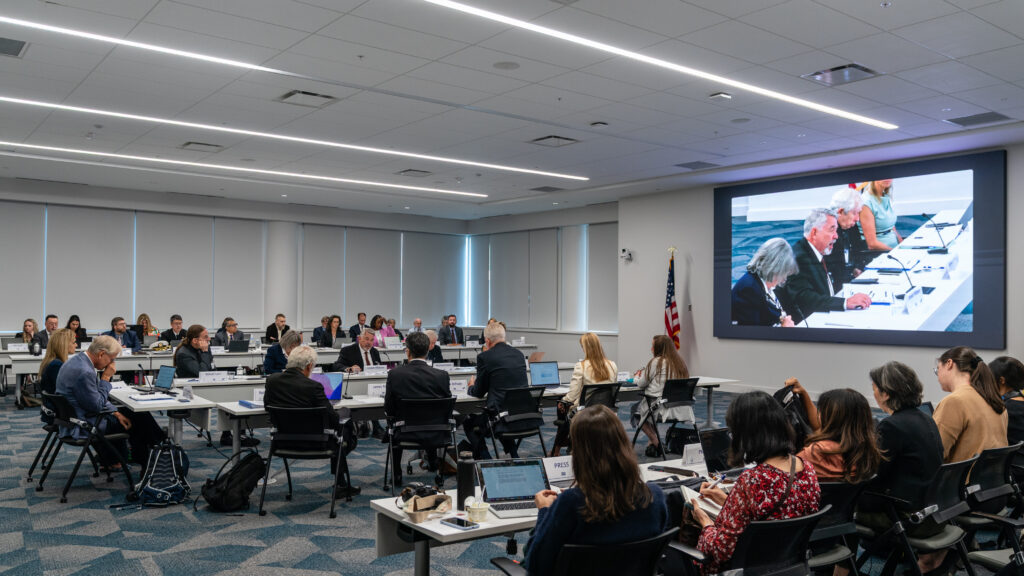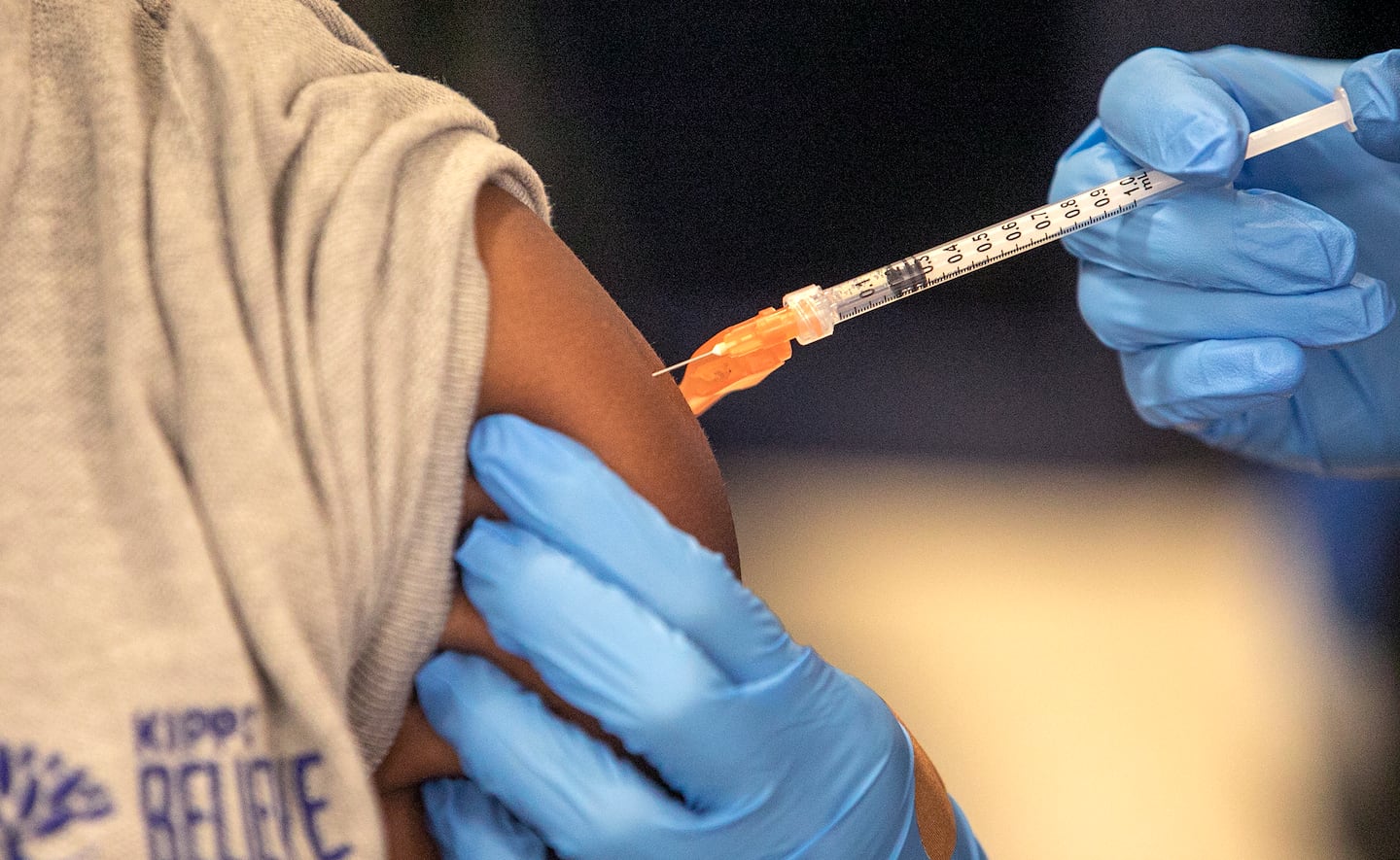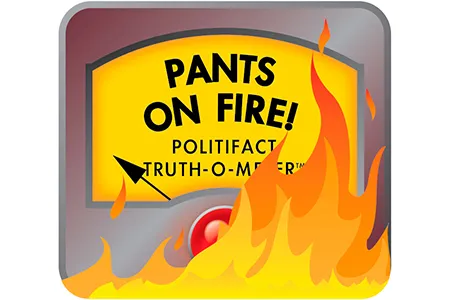
In June, health secretary Robert F. Kennedy Jr. fired the executive secretary and all 17 members of the Advisory Committee on Immunization Practices, the committee charged with making vaccine recommendations to the Centers for Disease Control and Prevention based on a review of the scientific evidence. I was one of those members. Kennedy replaced us with his own handpicked choices. Most, if not all, of the new ACIP members have expressed at least some concern with the federal response to Covid-19 or the resulting vaccines.
During last week’s ACIP meeting, the committee spent one of the two days discussing Covid-19 vaccines. Unvetted and unfounded data were presented, and the biases of ACIP committee members were apparent in their questions and comments. They fueled unfounded concerns about Covid-19 vaccines as a cause of cancer, with one committee member using her mother’s cancer as an anecdotal example. Another was outwardly rude to both CDC personnel and a spokesperson for one of the vaccine manufacturers as they tried to respond to committee questions. In some cases, committee members brought their own “studies,” which were not well designed or occurred in animals. At times, they needed basic biological processes explained, such as why mRNA vaccines could not possibly revert to DNA and integrate into our cells.
Advertisement
As a former member, I experienced a lot of emotions: sadness, frustration, even embarrassment.
But as I’ve thought about the meeting over the past few days, I realized that we, as a society, are facing an important disconnect. People, including the members of the ACIP, want individualized medicine, but public health policy is not the place to address that. When this committee relies on personal experiences and moves to make vaccines available under “individual decision making,” which they incorrectly attribute to an actual policy position called “shared clinical decision making,” they are trying to use the public health infrastructure to affect change in the health care system. Not only is that outside of their scope, but it’s also dangerous. According to its charter, “The ACIP shall provide advice and guidance to the Director of the CDC regarding use of vaccines and related agents for effective control of vaccine-preventable diseases in the civilian population of the United States.” (Italics added.)
This idea is not limited to the current ACIP membership. Similar arguments were made by physician and public health researcher Michael Mina on “Why Should I Trust You?,” a podcast that has become known for bringing together people on different sides of current public health, medicine, and scientific debates. In the episode, Mina argued in favor of delaying the hepatitis B vaccine birth dose. Just as some of the recent ACIP members did, he relied, in part, on personal anecdote, indicating that he, as someone who knows the data, opted to delay giving his child this vaccine until a couple of months after birth. However, unlike some on the ACIP, Mina kept qualifying his responses to make the point that he realizes his situation is different than that of some others and that he and his wife were in a somewhat “privileged” position to be able to make this choice for their family.
Advertisement
Mina’s qualifiers and the ACIP charter get at the heart of the difference between the practices of public health and medicine. The former focuses on populations, whereas the latter focuses on individuals and families. While these institutions are often interconnected by necessity, they also have to stay in their own lanes. Several dangers are inherent in the current movement to control the practice of medicine through public health policy. The recent conversations and changes around vaccine policy help illustrate these dangers.
First, in order for people to have vaccine choices, vaccines must be available. Two examples demonstrate how recent changes to the public health infrastructure are limiting individual choices in medicine. The first example relates to the Food and Drug Administration’s licensure of 2025-2026 Covid-19 vaccines for very specific groups of people. Historically, after FDA licensure, the ACIP would review the data to make recommendations for different groups of people. However, by limiting the license to specific groups, health care providers will be forced to, at least in some cases, administer Covid vaccines “off-label,” meaning giving the vaccine to someone for whom it is not licensed. While off-label use in medicine is relatively common, not all providers are willing or able to do this, and we quickly saw when a few national pharmacy chains indicated that they would no longer give the Covid vaccine without prescriptions in some states.
Another example of the loss of choice occurred when the ACIP voted against use of the MMRV vaccine before 4 years of age. Their vote last week limited the choices available for parents of 1-year-old children. Previously, separate vaccine doses, MMR and varicella (chickenpox), were described as “preferred” in the recommendations, but either approach (one combined shot in MMRV or two separate shots in MMR and varicella) was allowed. The preference came from an already established understanding that when about 2,500 children got MMRV vaccine and 2,500 children got MMR and varicella vaccines separately, one additional child in the MMRV group experienced a febrile seizure. Febrile seizures are relatively common in young children; they are the result of a fever increasing too quickly. These fever-related seizures, while scary for parents, do not cause long-term harm, and children outgrow the tendency by the time the second dose of these vaccines is recommended between 4 and 6 years of age.
Advertisement
Last week, when ACIP voted to no longer allow use of MMRV until children are at least 4 years old, they overlooked the fact that 85% of children were already getting the separate shots, and they took the choice away from the remaining 15% of parents who may have considered the risk of one additional febrile seizure out of every 2,500 children worth taking because they valued the ability to decrease the number of shots their child got at a single visit.
Second, families are in a variety of different situations when it comes to the costs of health care. ACIP recommendations directly determine whether vaccines are paid for by private insurers and the government. About half of children in the U.S. receive vaccines for free through the Vaccines for Children program. As was made clear by the need to repeat the VFC vote on MMRV during last week’s ACIP meeting, some voting members do not understand the intricate system of laws that are in place to ensure that the cost of vaccines is covered. The VFC program evolved after measles outbreaks in the late 1980s and early 1990s, when some children were susceptible because their families could not afford vaccination.
For the moment, most insurers appear willing to cover vaccinations despite ACIP changes. However, continued coverage is not guaranteed, and if we get to a point where vaccines are not covered, families will need to make choices about whether they can afford to protect their children against vaccine-preventable diseases. Public health policies need to ensure broad vaccine affordability, or the availability of “individual decision making” will only exist for the percentage of the population who can afford it.
Third, individualized medicine assumes that everyone has equal access to health care, but about one-third of people in the U.S. do not have primary care physicians. One of the main drivers is a lack of primary health care providers, especially in rural communities. So discussions around individualized medicine tend to apply only to a privileged percentage of the population. Mina acknowledged that in the episode of “Why Should I Trust You?,” but the new ACIP members seemed not to understand it, as demonstrated by their, thankfully failed, vote to require prescriptions for Covid vaccines.
Advertisement
This lack of understanding was also apparent when the chairperson of the Covid working group compared getting a prescription for a vaccine to getting one for antibiotics. People who are sick and don’t have primary health care providers often get their care in emergency rooms and urgent care centers. Many people with limited access to health care get vaccines through public health centers or pharmacies. So when the ACIP gets out over their skis by voting to require prescriptions, not only are they overlooking their charter to decrease vaccine-preventable diseases in the population, but they also stand to further exacerbate existing issues in individual healthcare attainment.
Fourth, as the saying goes, “When you’re holding a hammer, everything looks like a nail.” Public health policies that aim to fix health care system-based issues are not going to work. The hepatitis B discussions offer a good example. The ACIP was supposed to hold two votes related to the birth dose of hepatitis B vaccine. The first vote, which passed, was to test all pregnant women for hepatitis B infection. This is already a standard of care. However, earlier policies based on testing failed to catch all cases of maternal hepatitis B transmission because tests are not 100% accurate, the chance of being infected after testing but before delivery is real, and not all women have equal access to health care. Our success in preventing hepatitis B in young children came from the universal birth dose.
The second vote, which was postponed, aimed to delay the hepatitis B vaccine for infants born to mothers who test negative until 1 month of age unless the family opts for sooner vaccination based on “individual decision making.” When asked why this issue came up, given the success of the universal approach and a lack of science to support the change, one ACIP member said, “The signal that is prompting this is not one of safety. It’s one of trust.” However, if this committee had voted to delay the birth dose of hepatitis B vaccine, they would have made the U.S. the first country to rollback universal hepatitis B birth dose recommendations resulting in reductions in vaccine coverage, increases in infections, and unnecessary chronic disease among children infected as a result. Not a good way to build trust.
Advertisement
Certainly, we need trust in health care and in public health, but the solution is not to use public health policy as a way to improve health care delivery in this country. Quite the opposite. Public health policy, while informing individual care, must fulfill its population-based mission, so that healthcare providers have the runway to offer individual choices. Anything short of that will further erode trust. The ACIP, and DHS at large, must aid in the untangling of these interconnected, yet distinct, roles for public health and medicine rather than continue to espouse recovery of trust as their reason for implementing non science based vaccine policy changes.
Charlotte A. Moser is the co-director of the Vaccine Education Center at Children’s Hospital of Philadelphia and a former member of the CDC’s Advisory Committee on Immunization Practices.



